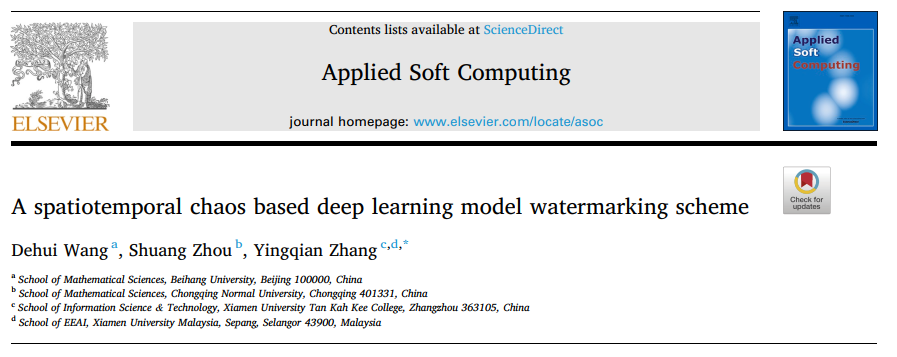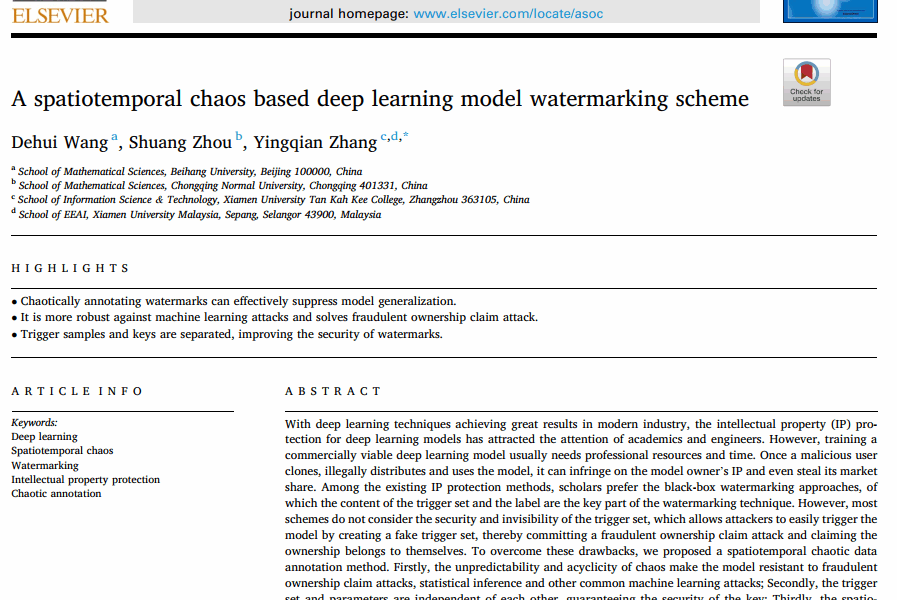Prof. Zhang Yingqian from the School of Electrical Engineering and Artificial Intelligence, Xiamen University Malaysia, has published a research article in Applied Soft Computing (SCI-Q1, IF 8.7), a Tier 1 and Top Journal listed in CAS (Chinese Academy of Science) Journal Ranking System, as the corresponding author.
Entitled “A spatiotemporal chaos based deep learning model watermarking scheme”, the article addresses the growing societal concern over the rapid development and impact of artificial intelligence, positioning itself at the forefront of academia. The challenge of preventing AI from evolving uncontrollably and ensure rational regulation remains an unsolved challenge both domestically and internationally, while the key to the issue lies in, similar to the identification systems in human society, assigning a universal and effective identity to each AI entity.
In this research, PhD student Wang Dehui from Beihang University, under the supervision of Prof. Zhang Yingqian and co-supervision of Prof. Zhou Shuang from Chongqing Normal University, proposed an immutable chaotic identifier for AI models. This identifier, embedded as a watermark within deep learning models using chaotic features, features in fraud-proof and tamper-resistant. It helps strengthen the control that AI creators have over their models, thereby offering the potential for reliable AI technology to governments, businesses, and consumers, particularly in scenarios where AI is replacing human labor.

Prof. Zhang Yingqian’s research primarily focuses on AI applications and security. Up till now, he has published 61 research articles in SCI journals, with a citation of 4,302 and an H-index of 34. Four of his research papers were listed as Highly Cited Papers in ESI and one as Hot Paper. He was named in World’s Top 2% Scientists 2023 and ranked among the top 0.5% of scholars globally in the field of artificial intelligence by ScholarGPS.
